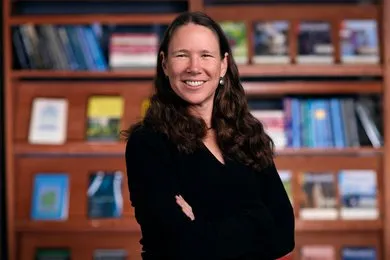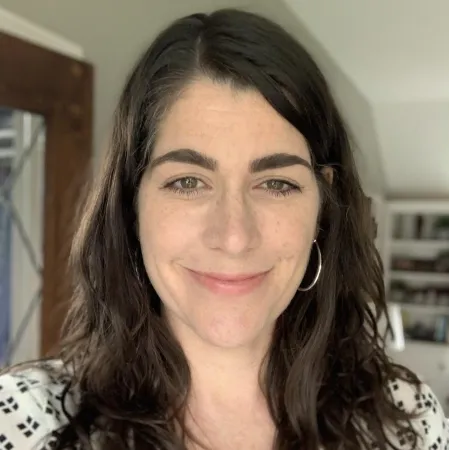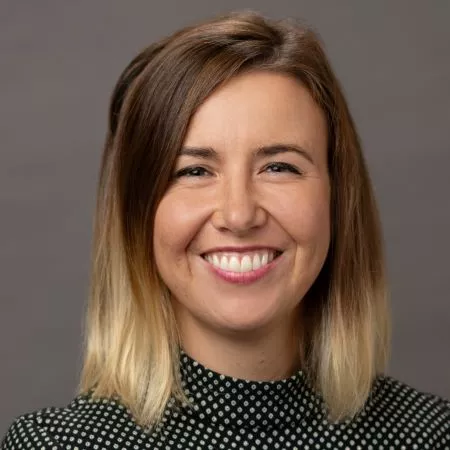Did you know that most of the land in the United States is privately owned? Approximately 60% of it, in fact. Therefore, how this land is managed has vast implications for the overall health of our environment—including our air and water. But, who makes a majority of those decisions and how do they go about doing it?
In this episode, Dr. Robyn Wilson and Dr. Rebecca Epanchin-Niell discuss their team's efforts to model private land management decision making using theories from economics, sociology, and psychology. The goal is that with a greater understanding of the decision-making processes of landowners, we can better design programs, incentives, and policies that benefit all.
To read the full transcript, click the PDF link below.
Special thanks to: Alaina Gallagher & Jill Gallagher for developmental editing assistance.
Additional Interesting Sources:
- Zarook, R. (2022, December 9). Map of the Week: Mapping Private vs. Public Land in the United States. UBIQUE. American Geographical Society. https://ubique.americangeo.org/map-of-the-week/map-of-the-week-mapping-private-vs-public-land-in-the-united-states/#:~:text=Today%2C%20private%20individuals%20and%20corporations,%2C%20while%2032%25%20are%20forests.
- Merrill, D., Pendleton, D., Alexander, S. et al. (2019, September 9). Here’s Who Owns the Most Land in America: The 100 largest private landowners in the U.S. own 40 million acres—an area the size of Florida. Bloomberg. https://www.bloomberg.com/graphics/2019-largest-landowners-in-us/?leadSource=uverify%20wall
-
About the Presenters
Image

Rebecca Epanchin-Niell
Senior Fellow; Associate ProfessorDr. Epanchin-Niell is both a Senior Fellow at Resources for the Future and an Associate Professor at the University of Maryland in the Department of Agricultural and Resource Economics. Her research focuses on ecosystem management, particularly understanding how human behavior affects ecological resources and identifying strategies to improve management. She applies integrated biophysical and economic analyses, engages stakeholders and decision-makers to identify policy needs, and is a frequent collaborator with natural and social scientists. Her current research includes development of...
Image
Rebecca Epanchin-Niell
Senior Fellow; Associate ProfessorDr. Epanchin-Niell is both a Senior Fellow at Resources for the Future and an Associate Professor at the University of Maryland in the Department of Agricultural and Resource Economics. Her research focuses on ecosystem management, particularly understanding how human behavior affects ecological resources and identifying strategies to improve management. She applies integrated biophysical and economic analyses, engages stakeholders and decision-makers to identify policy needs, and is a frequent collaborator with natural and social scientists. Her current research includes development of decision-support models for cost-effective management of invasive species, evaluation of contributing factors to successful proactive conservation of imperiled species, collaborative approaches to cross-boundary resource management, and design and evaluation of strategies for adaptation to sea level rise and saltwater intrusion in the Chesapeake Bay.
Image
Robyn Wilson
Professor of Risk Analysis and Decision Science; Acting Associate Director of the School of Environment and Natural ResourcesDr. Wilson is a Professor of Risk Analysis and Decision Science and Acting Associate Director of the School of Environment and Natural Resources at The Ohio State University. Her work has focused primarily on the interplay between intuitive and analytic information processing and the influence this has on risk perception and ultimately judgment or choice behavior. She is also interested in the development of risk communication and decision support tools to inform decision making and risk management. Her current research focus is on adaptation to climate-exacerbated hazards (e.g., wildfire...
Image
Robyn Wilson
Professor of Risk Analysis and Decision Science; Acting Associate Director of the School of Environment and Natural ResourcesDr. Wilson is a Professor of Risk Analysis and Decision Science and Acting Associate Director of the School of Environment and Natural Resources at The Ohio State University. Her work has focused primarily on the interplay between intuitive and analytic information processing and the influence this has on risk perception and ultimately judgment or choice behavior. She is also interested in the development of risk communication and decision support tools to inform decision making and risk management. Her current research focus is on adaptation to climate-exacerbated hazards (e.g., wildfire, algal blooms), and what motivates and constrains different land use and land management decisions on private and public lands.
Erin Duffy
Faculty SpecialistErin Duffy is a Communications Associate at the National Socio-Environmental Synthesis Center (SESYNC). In this role, she supports the communications team in designing and developing communication products that disseminate the vast knowledge created by SESYNC researchers worldwide. Inspired by the Center’s diverse and interesting projects and participants, Erin developed a podcast, Succinct Science—Audio Interviews from SESYNC, to help integrate intellectually expansive information into everyday life.
Passionate about community, individual, and environmental health and well-being, Erin has...
Erin Duffy
Faculty SpecialistErin Duffy is a Communications Associate at the National Socio-Environmental Synthesis Center (SESYNC). In this role, she supports the communications team in designing and developing communication products that disseminate the vast knowledge created by SESYNC researchers worldwide. Inspired by the Center’s diverse and interesting projects and participants, Erin developed a podcast, Succinct Science—Audio Interviews from SESYNC, to help integrate intellectually expansive information into everyday life.
Passionate about community, individual, and environmental health and well-being, Erin has worked in a variety of roles, including environmental educator; marketing associate for a social service organization, and community garden coordinator for a food bank, both through AmeriCorps; as well as a caregiver for adults with differing physical and intellectual abilities.
Erin earned a bachelor's degree in Environmental Policy and Science, and she has continued to pursue educational opportunities, most recently by becoming a certified yoga instructor and positive psychology practitioner.
